Dell Technologies and NVIDIA have commissioned IDC to conduct a comprehensive analysis of enterprise artificial intelligence (AI) adoption trends across the Asia- Pacific (APAC) region.
According to the analysis, most businesses in the region are moving from the experimental stage to systematic implementation, with the goal of turning artificial intelligence (AI) into a core competitive advantage.
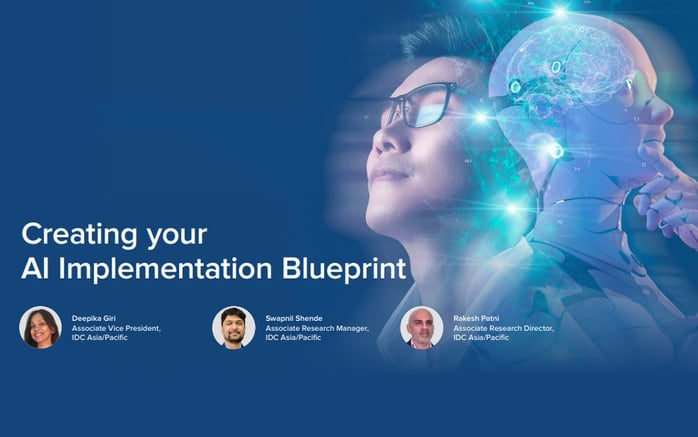
The study also reveals how businesses can overcome challenges when applying AI with support from technology vendors in the stages of assessing readiness, designing roadmaps, developing models, and training human resources.
The implementation roadmap is not easy
According to the survey, the AI dedicated server market in APAC is expected to reach US$23.9 billion by 2025. Notably, 84% of businesses plan to spend US$1-2 million on GenAI this year. The budget for GenAI in APAC accounts for 38% of total AI spending, higher than the global average, reflecting the trend of considering GenAI as a strategic priority.
However, the road to AI adoption in APAC is not an easy one. Businesses face challenges such as a shortage of AI-skilled personnel, rising costs of hiring experts, and the complexity of integrating them into existing processes.
IDC found that 72% of businesses emphasize the need for new hires to be knowledgeable about data and AI . In addition, security and privacy remain top concerns, especially as GenAI requires processing large amounts of sensitive data.
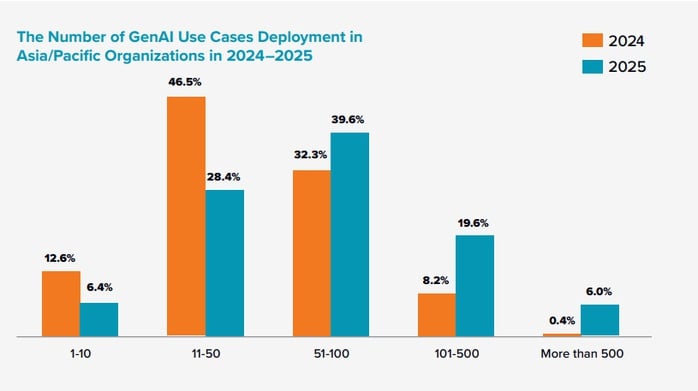
APAC Enterprises Scale Up GenAI Applications from 2024 to 2025
One notable trend is the shift in deployment models. While public cloud remains popular, more APAC businesses are turning to private or hybrid AI solutions to meet security requirements, control costs, and optimize infrastructure. This shows that AI strategies are moving towards specialized and industry-specific.
According to IDC, 60% of APAC businesses rely on external developers to deploy AI , while only 30% develop it internally. The lack of internal capabilities forces organizations to rely heavily on technology partners to build AI roadmaps, provide scalable infrastructure, and train talent. Successful businesses often choose partners that can provide comprehensive and flexible solutions, helping to shorten deployment times.
The application of AI is not limited to a few departments but is expanding to many key areas.
In the banking and finance industry, AI and GenAI are used for fraud detection and anti-money laundering. Manufacturing leverages AI for predictive maintenance and supply chain management. Energy deploys AI to optimize the power grid. Healthcare applies GenAI for diagnostics and personalized treatment. Retail uses AI agents to personalize customer experiences and inventory planning.
Overall, APAC is becoming a hot spot for global AI adoption.
Businesses that build a solid AI foundation – including infrastructure, quality data, specialized human resources and the right strategy – will be able to fully exploit the potential that AI brings, from improving operational efficiency, creating differentiated customer experiences to forming new business models.
* GenAI (Generative AI), also known as generative artificial intelligence, is a branch of AI that can automatically generate new content based on learned data. That content can be text, images, audio, video or even programming code. Familiar examples are ChatGPT, MidJourney, Gemini... or AI photo and music creation tools.
Research methods
IDC's InfoBrief ( Creating Your AI Implementation Blueprint , #AP242506IB, January 2025 release), sponsored by Dell Technologies and NVIDIA, is based on IDC data and a survey of 919 businesses in APAC (August 2023 to August 2024).
This study assesses AI, GenAI and ML application trends, challenges and strategic approaches for implementation.
Source: https://nld.com.vn/chau-a-thai-binh-duong-diem-nong-cua-viec-ung-dung-ai-196250905195126937.htm



![[Photo] Hanoi students excitedly and joyfully open the new school year 2025-2026](https://vphoto.vietnam.vn/thumb/1200x675/vietnam/resource/IMAGE/2025/9/5/ecc91eddd50a467aa7670463f7b142f5)


![[Photo] The drum beats to open the new school year in a special way](https://vphoto.vietnam.vn/thumb/1200x675/vietnam/resource/IMAGE/2025/9/5/b34123487ad34079a9688f344dc19148)
![[Photo] Opening ceremony of "Digital Citizenship - Digital School" and commitment to civilized behavior in cyberspace](https://vphoto.vietnam.vn/thumb/1200x675/vietnam/resource/IMAGE/2025/9/5/222ec3b8892f443c9b26637ef2dd2b09)

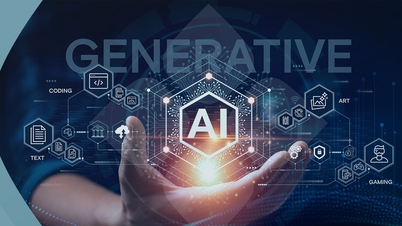

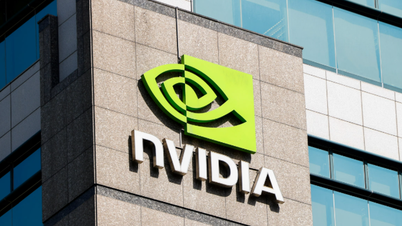




















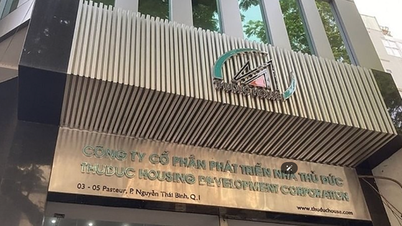
















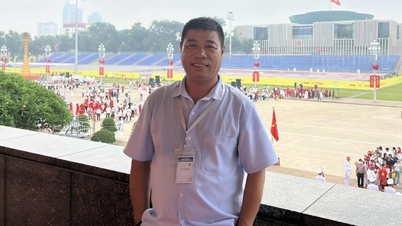









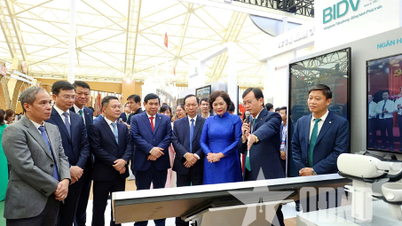













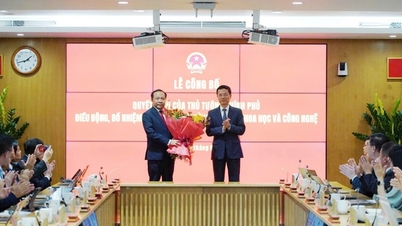


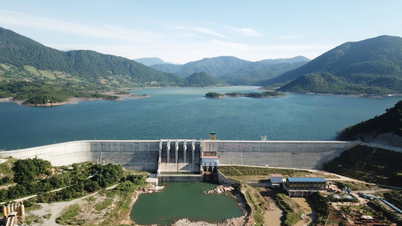




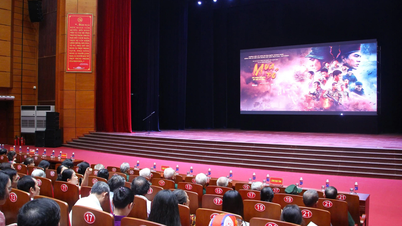









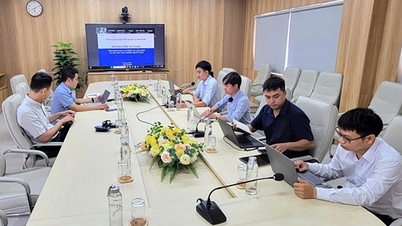












Comment (0)